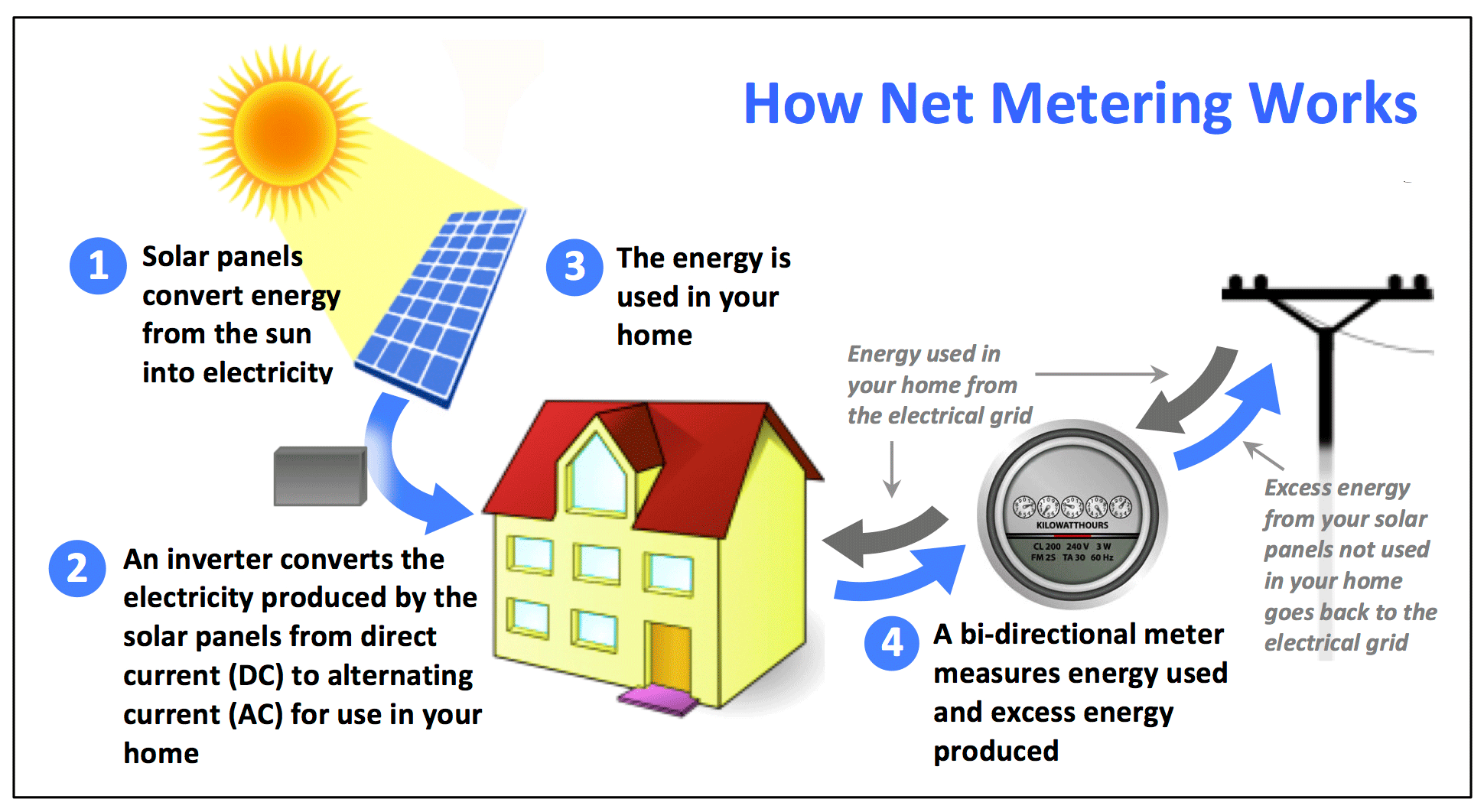· solar energy · 4 min read
How Fruitful can Net Metering be?
Net metering can be a fruitful endeavor, much like owning a tree that produces a bountiful harvest. It allows you to offset the cost of the power you draw from the grid, reducing your monthly electricity bills.

Imagine owning a tree that bears more fruit than you can eat. You could sell the surplus to your neighbors or save it for later. This decision is much like managing solar energy. Net metering allows you to ‘sell’ excess electricity back to the grid, earning credits on your energy bill. But what if your area doesn’t offer favorable net-metering terms, or you want to capitalize on Time-of-use (TOU) rates? That’s where understanding battery storage becomes essential. Whether you’re ‘selling’ excess power or ‘storing’ it for later, these concepts empower you to make informed decisions about your solar energy production
The Benefits of Net Metering: A Bountiful Harvest
Net metering can be a fruitful endeavor, much like owning a tree that produces a bountiful harvest. It allows you to offset the cost of the power you draw from the grid, reducing your monthly electricity bills. In states with favorable net metering policies, you can receive full retail credit for the excess electricity your solar system produces. This means that for every kilowatt-hour (kWh) of surplus energy you feed back into the grid, you receive a credit equal to what you would pay for that same amount of energy from the utility company. It’s like selling your surplus fruit at the market price, ensuring that you get fair value for your harvest. By taking advantage of net metering, you can make your solar investment even more rewarding and sustainable.

Net Metering Across the Nation: The Value of Your Fruit
Just as the value your neighbors place on your surplus fruit can vary, so too can net metering policies differ across the country. Some states offer full retail credit for excess solar energy, while others provide a partial credit. The difference in policies can significantly impact the financial benefits of your solar system. In states that offer full retail credit, you’re rewarded with the maximum value for your excess energy, much like selling your surplus fruit at the best market price. In contrast, states with partial credit may offer less compensation, akin to selling your fruit at a discount.
It’s essential to understand your state’s specific net metering policies to maximize your solar investment. Here is the link to the Database of State Incentives for Renewables & Efficiency where you can find detailed information about your state’s net metering policies. By familiarizing yourself with these policies, you can make informed decisions and ensure that you’re receiving fair value for your solar energy.
Feed-in Tariffs: Another Option
Feed-in tariffs (FiTs) are another option for managing excess solar energy, although they are not as widely accepted as net metering and are available in fewer states. Unlike net metering, where you receive credits against your energy bill, feed-in tariffs allow you to sell your excess energy back to the grid at a fixed rate, often locked in over a contract period of 10 to 20 years. This can provide a steady income stream but may not be as financially beneficial as net metering in some cases. FiTs are part of a complex landscape of renewable energy incentives and may vary significantly between states. Learn more about feed-in tariffs and their application in the U.S
The Need for a Plan: Managing Your Harvest
Solar batteries are like the freezers for your surplus fruit. They allow you to store excess energy for later use, giving you control over your energy consumption and savings. With a solar battery, you can take advantage of a strategy known as energy arbitrage, where you save money by using stored energy during peak pricing times. It’s like having a backup freezer full of fruit ready for when the market prices are high.
But if your state doesn’t have favorable net metering policies or feed-in tariffs, having a solar battery isn’t just a smart choice; it’s a necessity. Without these incentives, and without a battery, you would waste the excess electricity your solar system produces. A solar battery ensures you have a backup power supply when the sun isn’t shining, and it allows you to make the most of your solar energy production without giving away your hard-earned solar energy for free.
Conclusion
Solar energy management is like tending to a fruitful tree. Net metering, feed-in tariffs, and solar batteries are tools that allow you to harvest the full potential of your solar investment. Whether you’re ‘selling’ excess energy back to the grid or ‘storing’ it for later use, understanding these options is key to maximizing your savings and sustainability. Embrace the power of solar, and take control of your energy destiny. Your tree is ripe, and the harvest awaits.